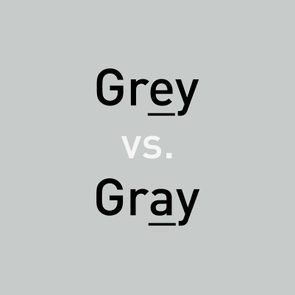Blond vs. Blonde: Which is Correct?
Updated: Mar. 28, 2022

Is your best friend's hair blonde or blond? Is that blond man just your type, or perhaps his blonde sister? All blonde-blond jokes aside—what is the difference between blond and blonde?
You’ve been describing hair color your whole life. In fact, you likely never thought about how you’re spelling it. The yellowish-gold color seems pretty straightforward to describe—it’s blonde. Or is it blond? You’ve likely seen both, but do you actually know the difference?
In theory a person can have brown hair, red hair, black hair, or blond(e) hair. Does the addition or subtraction of that one little “e” make a difference? When thinking about blond vs. blonde, is one wrong and one right? Or is it circumstantial? Maybe it’s another word you’ve been using wrong this whole time!
Have you been describing the hair color incorrectly since your first coloring worksheet?
Blonde vs. blond, what’s the deal?
To assuage your fears, neither is inherently wrong. Both “blonde” and “blond” are correct, though which is best to use depends on the circumstance. In clear terms, “blond” is an adjective used for masculine nouns (i.e. the blond boy) while “blonde” is only attributed to female nouns (i.e. the girl is blonde.) The “blond” spelling is most common and can technically be used for masculine or feminine nouns, though many marketing campaigns (looking at you Starbucks and hair dye companies!) use the more feminine “blonde” spelling.
Both forms originally come from Old French, which like all romance languages is extremely gendered. For the English language, Grammar Girl confirms that both the AP stylebook and The Chicago Manual of Style argue to maintain the distinction and add or remove the “e” based on gender.
What about genderless nouns?
First, “blond” spelled without an “e” is the most common spelling in the United States. It is the accepted term when the noun, or person being described, does not have a clear gender. Therefore, non-gendered or non-binary nouns can be described using the masculine form. This is perhaps because many objects and inanimate nouns are considered and treated as masculine when not specified.
That is, of course, unless they are particularly marketed toward a female audience. “Blonde” is very common when talking about hair products, dyes, or even brownies. Many companies still create targeted and gendered advertising, sometimes with color-coded packaging (but remember that pink wasn’t always thought of as a “girl color”).
Why is “blonde” such a popular spelling?
Unsurprisingly, women aren’t always treated equally to men. The popularity of the word “blonde” has sometimes been seen as inherently sexist or a hold-over from the past. Why is that?
It is partially due to the popularity of simplifying women down to their physical characteristics. For instance, “the blonde over there,” is a common way to describe women yet used much less frequently to describe men. The word “blonde” gains much of usage from synecdoches (the literary device where a part of something represents the whole). For instance, many joke punchlines, stereotypes, and other gender-specific assumptions will use the “blonde” form to clarify a female as the object of the sentence.
The bottom line: when to use blonde or blond?
If you are describing a masculine noun, it is best to use “blond.”
Example: “Just look for the tall, blond guy!”
If you are describing a feminine noun, you have your choice of using either “blonde” or “blond.”
Examples: “My older sister is blonde, but I’m brunette.” OR “She’s such a cute, blond baby!”
If you are describing an intimate object or genderless noun, it is best to use “blond.” Though be aware that sometimes companies and individuals make purposeful exceptions for “feminine” inanimate objects.
Examples: “Is that your blond dog over there?” OR “I’m looking for a blond chest of drawers.”
When in doubt: Use “blond.”
Yes, even if the people around you are used to the other spelling. Or, just in case, check out the best grammar checking programs to really cover your bases!




















